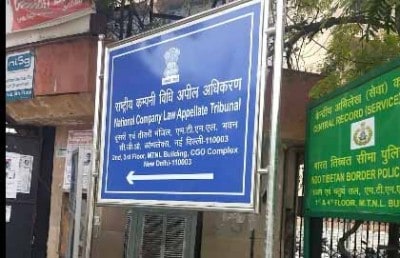New Delhi, Feb 15 : The National Company Law Appellate Tribunal (NCLAT) on Monday held that the Delhi Gymkhana Club policy under which membership of a person attains hereditary character and general public seeking membership are being made to wait for decades, is certainly prejudicial to the public interest.
In a scathing condemnation of the club’s policy, the tribunal said largesse by the state cannot be said to be intended for enjoyment or use by highly placed individuals only. The government had given land to the club on perpetual lease, and it was initially registered as a Section 8 company with specific objectives related to sports and pastimes.
In a critical 57-page order, a three-member NCLAT bench, headed by Acting Chairperson Justice Bansi Lal Bhat noted that the club has been perusing a policy under which membership of a person with a dependent child clothes him with the right to use the club’s facilities for his lifetime as also for his child, subject to a formality of applying for membership when the child attains the age of 21 years and upon such child gaining membership before his child is 21 years old.
“… the grand child of the basic member, the facility would be available for such child also with the process continuing ad infinitium. Such enjoyment of state largesse partaking of a hereditary character cannot be said to be promoting public interest. It would rather fall foul of Article 14 of the Constitution of India rendering such enjoyment abhorrent to public interest ad nauseum”, said NCLAT in its order.
The Centre submitted that when the prime object of sports facility is taken over by the elite for recreational purposes and activities of the company are hit by nepotism and favouritism while the company was formed on the basis of state largesse, there was an injury to public interest.
This ruling has come on petitions by the Corporate Affairs Ministry as well as the club, challenging an interim order passed by the National Company Law Tribunal (NCLT) last year.
“Largesse by the state cannot be said to be intended for enjoyment or use by highly placed individuals only. The Constitution of India sets the goal of a welfare state and establishment of an egalitarian society where the citizens are not discriminated on the basis of region, religion, caste, language, race or social strata,” the NCLAT said.
It junked the club’s argument that its membership policy does not involve public interest. The tribunal upheld Centre’s argument that it was not correct that general public seeking membership was made to wait for decades together with membership fee being held up and its interest component being utilised for the recreational and pleasurable activities of permanent members.
The NCLAT ordered the suspension of the club’s General Committee (GC) and directed the Centre to appoint an administrator to manage its affairs.
The Corporate Affairs ministry, in April last year, had moved the NCLT under sections 241 and 242 of the Companies Act, 2013, seeking to take over club’s GC and also allow it to nominate 15 persons as directors to run affairs of the club.
The club also challenged the NCLT verdict, urging the appellate tribunal to set aside the order. Later, the NCLAT clubbed these petitions and passed a common judgment.
Disclaimer: This story is auto-generated from IANS service.

